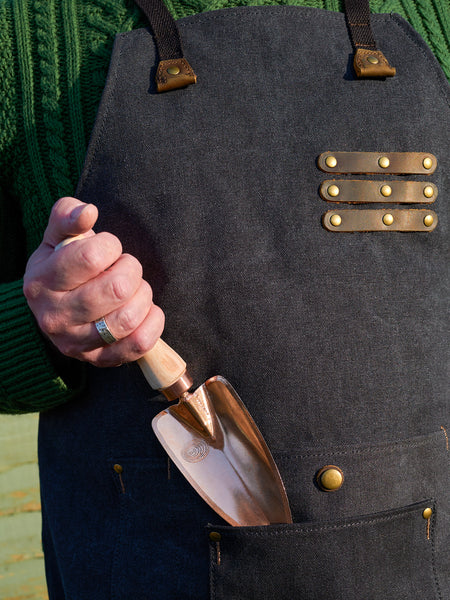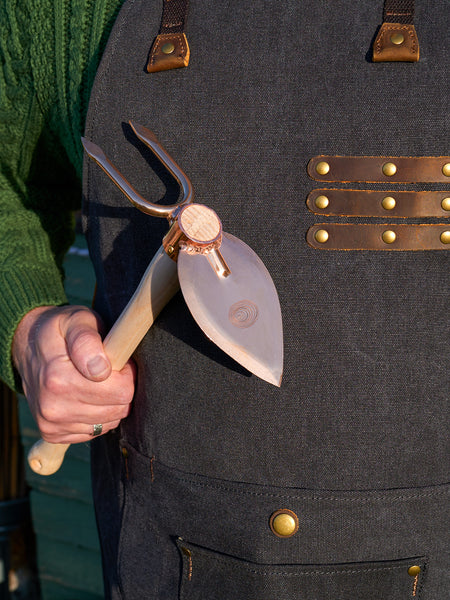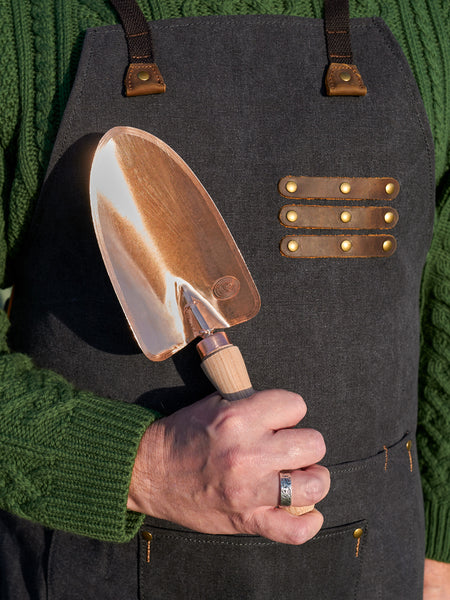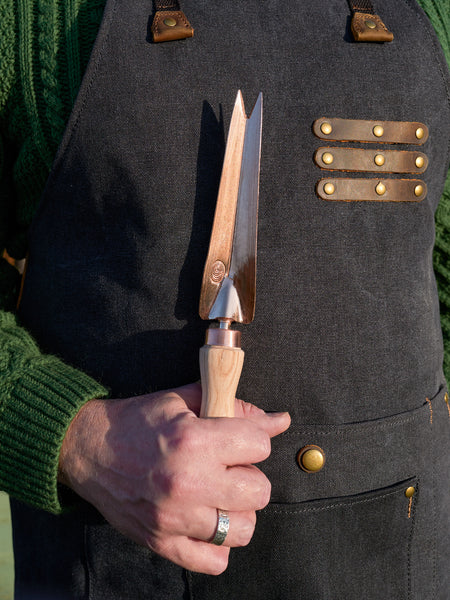'Vida' Copper Hoe
£65.00
Copper tools are not only beautiful but useful too. This magnificent dual-purpose hoe and cultivator is fashioned from solid bronze, an alloy of copper with tin. It makes light work of loosening the soil between plants and preparing bare ground for planting.
- Robust, well balanced, easy to use garden tool
- Overall dimensions: 40cm x 20cm x 6cm
- Made from bronze with an ash wood handle
- A thickened lower end prevents the handle from slipping through your hands
- Rustproof
I aim to pick and pack your order within 24 hours of receipt and you should expect your parcel to arrive within 3–5 working days under normal circumstances. Orders placed on a Friday may not be sent until the following Monday. All delivery charges are calculated and displayed at the checkout.
- If your order can safely be sent in an envelope or small parcel, it will be sent by Royal Mail via a tracked service for £3.50. This doesn't require a signature but does let you know where your parcel is.
- Larger orders will be sent either with Royal Mail or a premium courier service for £4.95. Tracking details will be sent via SMS and/or email, if these contacts are provided.
- Extra large or heavy items will be sent via a premium courier service with tracking provided. Delivery is normally the next working day after dispatch.
- For deliveries to Northern Ireland, the Isle of Man, Channel Islands and international addresses, please drop me a line at atyourservice@dancoopergarden.com letting me know where you are in the world and what you'd like to purchase. I will check the items are allowed to be shipped to your location and get a cost for your approval.
Should you need to return an item, drop me a line at atyourservice@dancoopergarden.com within 14 days of receiving your purchase, providing your name, order number and the reason for your return. I will let you know how to return your item.
Please visit my Delivery & Returns page for more detailed information.
There is so much to say in praise of copper tools that it's hard to understand why we don't use them more often. As well as being deeply practical, they make very glamorous gifts for gardeners when new and still softly gleaming.
In its pure form, copper can be beaten or formed into complex shapes without cracking. When combined with small quantities of other metals, notably tin to make bronze, copper retains its flexibility but becomes considerably harder and more durable.
Copper tools are sharp and can be sharpened with a whetstone or file. Whatsmore, because the metal has a low coefficient of friction, there is less tendency for soil to cling to it. Copper tools glide through the ground and need minimal cleaning, however, they can be dented if they hit stones or other large obstacles.
Copper does not rust so tools made from bronze have a much longer lifespan than those forged from iron. Over time they will develop an attractive patina that helps to protect the metal beneath. As copper tools are used, minute amounts of copper are deposited in the soil benefitting microorganisms but deterring slugs and snails. Traces of copper also increase the soil's ability to retain water, which is particularly useful in light, sandy or dry situations.










